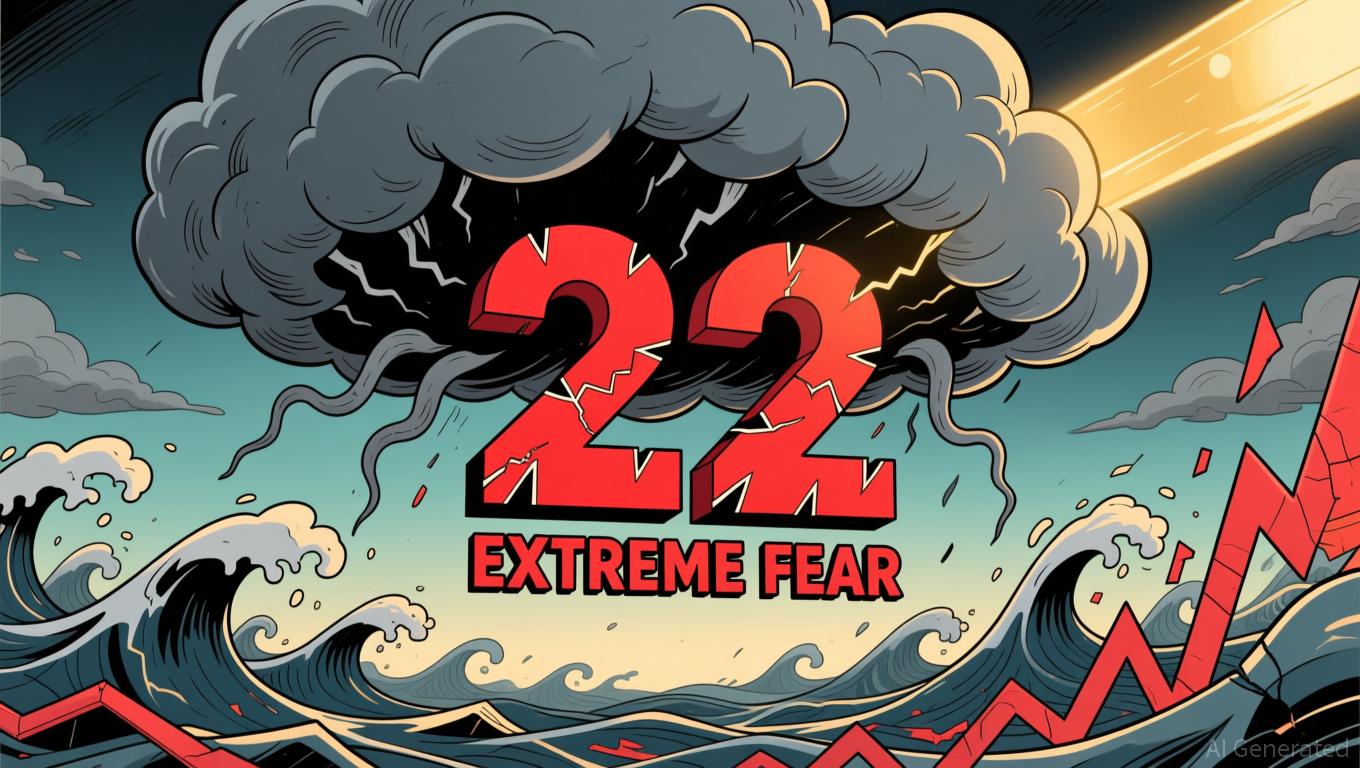ZK Atlas Enhancement and Its Influence on Blockchain Expansion
- ZKsync's 2025 Atlas Upgrade introduces Airbender proofs and a modular OS, achieving 15,000 TPS with $0.0001 gas fees. - The upgrade enables EVM compatibility and RWA tokenization, boosting institutional adoption with $3.5B TVL and Deutsche Bank's cross-chain projects. - ZK token's 50% price surge and $15B ETF inflows highlight its deflationary model, while the upcoming Fusaka upgrade targets 30,000 TPS by December 2025.
Technical Breakthroughs Powering Scalability
Central to the ZK Atlas Upgrade is the Airbender proof mechanism, which enhances zero-knowledge (ZK) rollup efficiency by minimizing computational demands. This innovation, paired with a modular ZKsync OS that compiles state transitions into x86 for execution and RISC-V for proof creation,
This upgrade also
Transforming the Layer 2 Landscape
The ZK Atlas Upgrade tackles key challenges in L2 networks, such as fragmentation and lack of interoperability. By
Since the upgrade, institutional participation has
Benefits for Early Adopters and Future Prospects
Developers and institutional investors who adopted early have seen considerable benefits. The ZKsync Atlas Upgrade’s economic structure, which shifts the ZK token from a governance tool to a value-generating asset through buybacks and burns,
Looking to the future,
Conclusion
The ZK Atlas Upgrade signals a transformative moment for blockchain scalability, providing a roadmap for organizations and developers to take advantage of ZK technology. By overcoming technical limitations, enhancing interoperability, and aligning with Ethereum’s modular vision, ZKsync has established itself as a vital infrastructure layer for the next generation of decentralized solutions. For investors, the upgrade’s early adopter benefits—driven by institutional collaborations, tokenomics, and real-world asset tokenization—make a strong case for long-term value in the increasingly competitive L2 environment.
Disclaimer: The content of this article solely reflects the author's opinion and does not represent the platform in any capacity. This article is not intended to serve as a reference for making investment decisions.
You may also like
Switzerland Postpones Crypto Tax Data Exchange to Meet Technological and International Requirements
- Switzerland delays crypto tax data sharing until 2027, aligning with global regulatory reevaluations amid evolving tech and market dynamics. - SGS acquires Australia's Information Quality to boost digital revenue, reflecting Swiss firms' expansion into tech-driven compliance solutions. - Canada's Alberta oil sands policy shift highlights governments prioritizing economic growth over strict climate regulations, mirroring Switzerland's approach. - BridgeBio's precision medicine and Aires' EMF solutions dem

Switzerland's Focus on Privacy Conflicts with International Efforts for Crypto Taxation
- Switzerland delays crypto tax data sharing with international partners until 2027, contrasting with global regulatory efforts to close offshore loopholes. - The U.S. advances implementation of the OECD's CARF framework, aiming to automate reporting on foreign crypto accounts by 2029. - CARF requires foreign exchanges to report U.S. account details, mirroring traditional tax standards and targeting crypto tax evasion. - Switzerland's privacy-focused stance highlights tensions between financial confidentia

Zcash News Update: Reliance Shifts Entirely to Zcash, Citing Privacy and Regulatory Alignment
- Reliance Global Group, a Nasdaq-listed fintech firm, shifted its entire crypto portfolio to Zcash (ZEC), divesting Bitcoin , Ethereum , and other major coins. - The strategic pivot, announced November 25, prioritizes Zcash's privacy-focused zk-SNARKs technology for institutional compliance and selective data disclosure. - Zcash's 1,200% 90-day price surge and Grayscale's ETF filing highlight growing institutional interest in privacy-centric assets. - The move reflects broader crypto industry trends towar
Bitcoin News Update: Bitcoin Fear Index Drops to 22 While Investors Look for Signs of Market Rebound
- Bitcoin Fear & Greed Index rose to 22 from 20, indicating slight easing of extreme fear but persistent bearish sentiment. - Bitcoin stabilized near $87,000 after hitting $80,553, yet remains below key resistance levels amid $3.5B ETF outflows. - Structural factors like leverage and liquidations drive selloffs, with ETF redemptions correlating to 3.4% price drops per $1B outflow. - Analysts note oversold technical indicators and waning retail capitulation as potential inflection points for near-term rebou
